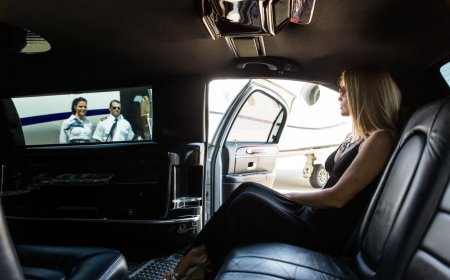How to Attend BBQ Judging School Memphis
How to Attend BBQ Judging School Memphis Barbecue is more than just food—it’s a cultural tradition, a competitive art form, and a community-driven passion that spans the United States. Nowhere is this more evident than in Memphis, Tennessee, a city synonymous with slow-smoked ribs, tangy sauces, and a deep-rooted barbecue heritage. At the heart of this tradition lies the art of judging barbecue co
How to Attend BBQ Judging School Memphis
Barbecue is more than just food—it’s a cultural tradition, a competitive art form, and a community-driven passion that spans the United States. Nowhere is this more evident than in Memphis, Tennessee, a city synonymous with slow-smoked ribs, tangy sauces, and a deep-rooted barbecue heritage. At the heart of this tradition lies the art of judging barbecue competitions, a skill that requires precision, consistency, and an acute understanding of flavor, texture, and presentation. For enthusiasts, pitmasters, and food professionals alike, attending BBQ Judging School Memphis offers a transformative opportunity to learn from industry veterans, earn official certification, and gain credibility in the competitive barbecue world.
BBQ Judging School Memphis is not merely a course—it’s an immersive experience designed to train individuals to evaluate barbecue entries according to the standards set by the Kansas City Barbeque Society (KCBS) and other recognized organizations. Whether you aspire to judge at local fairs, national championships, or even become a certified KCBS judge, this school provides the foundational knowledge and hands-on practice necessary to succeed. This guide will walk you through every step of the process, from preparation to certification, and equip you with the tools, best practices, and real-world insights to thrive as a barbecue judge.
Step-by-Step Guide
Step 1: Understand the Role of a BBQ Judge
Before enrolling in BBQ Judging School Memphis, it’s critical to understand what being a barbecue judge entails. Judges are responsible for evaluating entries in categories such as ribs, chicken, pork shoulder (pulled pork), and brisket. Each entry is scored based on three primary criteria: taste, tenderness, and appearance. Judges must remain impartial, consistent, and objective, often tasting multiple entries in rapid succession while avoiding palate fatigue.
Unlike casual diners who enjoy barbecue for flavor alone, certified judges are trained to detect subtle nuances—such as smoke ring depth, bark texture, moisture retention, and seasoning balance—that separate good barbecue from exceptional barbecue. This requires discipline, training, and a structured approach to evaluation.
Step 2: Research Accredited BBQ Judging Schools in Memphis
Memphis is home to several reputable organizations that offer official judging schools, most notably those affiliated with the Kansas City Barbeque Society (KCBS). KCBS is the largest barbecue judging organization in the world and sets the gold standard for competition rules and judging protocols. Other organizations, such as the Memphis in May World Championship Barbecue Cooking Contest, also host judging training sessions.
To begin, visit the official KCBS website (kansascitybarbequesociety.com) and navigate to the “Judging” section. Here, you’ll find a calendar of upcoming judging schools across the country, including those held in or near Memphis. Look for events labeled “KCBS Judging School” and confirm the date, location, and registration details. Many Memphis-area schools are held at community centers, culinary schools, or even at popular barbecue restaurants that serve as training venues.
Step 3: Register for the Course
Registration for BBQ Judging School Memphis typically opens 4–6 weeks before the event. Seats are limited, and courses often fill quickly due to high demand from aspiring judges, pitmasters, and barbecue fans. Registration is usually done online via the hosting organization’s website. You’ll need to provide your full name, contact information, and sometimes a brief statement about your interest in barbecue judging.
Registration fees range from $50 to $100, depending on the organization and whether meals or materials are included. Some schools offer early-bird discounts or group rates for teams registering together. Once registered, you’ll receive a confirmation email with a detailed agenda, required materials, and parking or venue instructions.
Step 4: Prepare for the Course
Preparation is key to maximizing your learning experience. Before attending, familiarize yourself with the KCBS judging guidelines. Download and read the official KCBS Judging Manual, which outlines scoring criteria, judging procedures, and ethical standards. Pay special attention to the scoring sheets used for each meat category, as these will be the foundation of your evaluations during the school.
Additionally, practice tasting barbecue with a critical eye. Attend local barbecue events, taste entries from different pitmasters, and take notes on what you like and dislike. Focus on identifying textures (e.g., is the meat falling off the bone or dry?), smoke flavor (is it balanced or overpowering?), and seasoning (does it complement or mask the meat?).
Bring the following items to the school:
- Notepad and pen for taking notes
- Water and unsalted crackers (to cleanse your palate between samples)
- Light, neutral clothing (avoid strong perfumes or colognes)
- Snacks (to maintain energy during long sessions)
- Open mind and willingness to learn
Step 5: Attend the Judging School
On the day of the school, arrive at least 15–30 minutes early. Most Memphis judging schools begin with an introduction to KCBS rules, followed by a presentation on the judging process, ethics, and common pitfalls. Instructors are typically seasoned KCBS judges with years of experience at national competitions.
The bulk of the day is hands-on. You’ll be divided into small teams and assigned to judge mock entries prepared by professional pitmasters. Each category—ribs, chicken, pork, and brisket—is tasted in sequence. You’ll receive a scoring sheet and must assign scores from 1 to 10 for taste, tenderness, and appearance, with 10 being perfect.
After scoring, the group will engage in a “calibration” session, where judges compare scores and discuss why certain entries received high or low marks. This is where the real learning happens. You’ll hear expert commentary on what makes a rib “fall-off-the-bone” versus “overcooked,” how to identify proper smoke penetration, and why appearance matters even though taste is weighted most heavily.
Step 6: Pass the Certification Test
At the end of the day, you’ll be given a written test covering KCBS rules, judging terminology, ethics, and scoring procedures. The test is typically multiple-choice and open-book, allowing you to reference the KCBS manual. You must score at least 80% to pass. Most participants pass on their first attempt if they’ve reviewed the materials beforehand.
Upon passing, you’ll receive a KCBS Judge ID number and an official certificate. This ID is valid nationwide and allows you to judge at any KCBS-sanctioned event. You’ll also be added to the KCBS judge database, making you eligible to be selected for major competitions.
Step 7: Gain Experience Through Volunteer Judging
Certification is only the beginning. To become a skilled and respected judge, you must gain real-world experience. Start by volunteering at local barbecue events, county fairs, or charity cook-offs. Many Memphis-area events welcome new judges and provide mentorship opportunities.
As you judge more events, you’ll refine your palate, develop consistency, and learn to adapt to different cooking styles. Over time, you may be invited to judge at larger events, including the Memphis in May World Championship Barbecue Cooking Contest, one of the most prestigious barbecue competitions in the world.
Best Practices
1. Maintain Palate Neutrality
One of the most critical skills for a barbecue judge is the ability to taste objectively. Avoid consuming strong coffee, spicy foods, or alcohol before judging. Refrain from using scented lotions, perfumes, or hair products, as these can interfere with your sense of smell and taint your evaluation. Always use water and plain crackers between samples to reset your palate.
2. Follow the Scoring Criteria Strictly
KCBS scoring is based on three equally weighted categories: taste (40%), tenderness (30%), and appearance (30%). Never let personal preference override the guidelines. For example, if you dislike sweet sauce but the meat is perfectly cooked and balanced, you cannot give it a low score simply because of your bias. Judges must evaluate based on the criteria—not their personal tastes.
3. Avoid “Groupthink” During Calibration
During calibration sessions, it’s tempting to align your score with the majority. However, this undermines the integrity of the judging process. Trust your palate and your training. If your score differs from others, be prepared to defend it with specific observations. Healthy debate among judges leads to more accurate and fair evaluations.
4. Document Your Judging Experience
Keep a judging journal. After each event, note the pitmaster’s name, the entry’s characteristics, your scores, and any feedback you received. Over time, this journal becomes a valuable reference for identifying patterns, improving your palate, and preparing for advanced judging roles.
5. Stay Updated on Rules and Trends
BBQ judging standards evolve. KCBS occasionally updates its rules, and regional styles change. Subscribe to KCBS newsletters, follow official social media accounts, and attend annual judging workshops to stay current. Understanding trends—such as the growing popularity of Texas-style brisket in Memphis competitions—can give you an edge in evaluating diverse entries.
6. Be Ethical and Professional
Barbecue judging is a privilege, not a right. Never accept gifts, favors, or special treatment from competitors. Never discuss scores publicly before official results are announced. Maintain confidentiality and professionalism at all times. Your reputation as a fair, consistent judge is your most valuable asset.
7. Network with Other Judges
The barbecue judging community in Memphis is tight-knit and supportive. Attend local meetups, join online forums like the KCBS Judge’s Circle on Facebook, and connect with experienced judges. Many veteran judges are happy to mentor newcomers and may invite you to judge alongside them at larger events.
Tools and Resources
Official KCBS Resources
The Kansas City Barbeque Society provides the most comprehensive set of tools for aspiring judges:
- KCBS Judging Manual – The definitive guide to scoring criteria, rules, and ethics. Available for free download on the KCBS website.
- Online Judging Simulator – A web-based tool that lets you practice scoring mock entries and receive instant feedback.
- Judge Database – Once certified, your profile is listed here, making you eligible for judging assignments at events nationwide.
Mobile Apps for Judging
Several apps streamline the judging process:
- KCBS Judge App – Official app for scoring entries on your smartphone. Syncs with event databases and auto-calculates scores.
- BBQ Scorecard – A customizable scoring tool for personal practice and training.
- Palate Reset Timer – Helps you time water and cracker breaks between samples to avoid palate fatigue.
Recommended Books
Deepen your understanding of barbecue with these authoritative titles:
- “The Barbecue Bible” by Steven Raichlen – A comprehensive guide to techniques, rubs, and regional styles.
- “Smoke & Spice” by Cheryl and Bill Jamison – Explores the history and science of barbecue, with insights into flavor development.
- “The Pitmaster’s Guide to Barbecue” by Mike Mills – Written by a legendary KCBS Grand Champion, this book offers insider perspectives on judging and competition.
Local Memphis Resources
Memphis is rich with barbecue institutions that offer learning opportunities:
- Central BBQ – Offers occasional behind-the-scenes tours and tasting seminars for aspiring judges.
- Bar-B-Q Shop – Hosts monthly “Judging Nights” where locals can sample and score entries in a casual setting.
- Memphis in May Foundation – Provides volunteer judging opportunities during the World Championship Barbecue Cooking Contest each May.
- University of Memphis Culinary Program – Occasionally partners with KCBS to host judging workshops open to the public.
Online Communities
Engage with fellow judges and pitmasters through these platforms:
- KCBS Judge’s Circle (Facebook Group) – Over 15,000 members share tips, ask questions, and post judging experiences.
- Reddit r/BBQ – A vibrant community discussing techniques, recipes, and judging debates.
- Barbecue Forum (barbecueforum.com) – A long-standing forum with detailed threads on judging calibration and scoring.
Real Examples
Example 1: The Ribs That Won Memphis in May
In 2022, a team from Jackson, Mississippi, won the Memphis in May rib category with a score of 96.2 out of 100. Their ribs were praised for their perfect smoke ring—deep red extending 1/4 inch into the meat—and bark that was crisp but not burnt. The sauce was applied lightly, allowing the rub and smoke to shine. One judge noted: “The meat pulled cleanly from the bone with zero resistance, yet retained moisture. The spice blend had heat, but not burn—just the right amount of black pepper and paprika.”
What made this entry stand out? It followed KCBS standards precisely: taste (97), tenderness (95), appearance (96). It didn’t rely on gimmicks—it delivered flawless execution. This is the standard every judge must recognize.
Example 2: The Common Mistake—Over-Sauced Chicken
A team at a regional Memphis competition scored poorly on chicken despite having tender meat. The judges noted: “The chicken was moist and well-seasoned, but the sauce was so thick and sweet it masked the natural flavor of the bird. The appearance was glossy but unevenly applied, with drips on the platter.”
This is a classic error. Many novice pitmasters believe more sauce equals better flavor. But judges are trained to value balance. The chicken scored 82 on taste (due to sauce overload), 88 on tenderness, and 75 on appearance—resulting in a final score of 83.3. This entry highlights why appearance and sauce application matter as much as taste.
Example 3: The Brisket That Taught a New Judge
A first-time judge at a Memphis charity cook-off was assigned to score a brisket that looked dry and unimpressive. Her initial instinct was to give it low marks. But after tasting it, she found the meat was tender, smoky, and perfectly seasoned. The dryness was due to a thin bark—a stylistic choice common in Texas-style brisket.
During calibration, a veteran judge explained: “In KCBS, brisket is judged on flavor and texture, not appearance alone. A dry bark doesn’t mean dry meat. This brisket had a perfect smoke ring and clean, smoky finish. It’s a 90.”
This experience taught the judge the importance of separating appearance from substance. She went on to become a top-rated judge in the region.
Example 4: The Ethical Dilemma
At a Memphis-area competition, a judge recognized a pitmaster who had previously donated to a charity she supported. The judge felt conflicted about giving a high score. After consulting with the event coordinator, she disclosed the relationship and recused herself from scoring that entry. The team was later judged by a different panel and still won their category based on merit.
This example underscores the importance of ethics. Even the perception of bias can damage the credibility of a competition. Transparency and integrity are non-negotiable.
FAQs
Do I need to be a professional pitmaster to attend BBQ Judging School Memphis?
No. While many judges are experienced pitmasters, the school welcomes anyone with a passion for barbecue. Home cooks, food bloggers, chefs, and enthusiasts all benefit from the training. The focus is on learning to judge, not to cook.
How long does the BBQ Judging School Memphis course last?
Most courses last one full day, typically from 9 a.m. to 5 p.m. This includes lectures, hands-on judging sessions, calibration, and the certification test.
Is the KCBS certification valid outside of Memphis?
Yes. KCBS certification is recognized nationwide and internationally. Once certified, you can judge at any KCBS-sanctioned event in the U.S., Canada, and beyond.
Can I judge without being certified?
Some small, local events allow uncertified judges, but major competitions like Memphis in May require official KCBS certification. Certification ensures consistency and fairness across all judging panels.
How much does it cost to become a certified BBQ judge?
Registration for the judging school ranges from $50 to $100. There are no annual fees for KCBS judges. Once certified, your ID is valid for life.
How often should I judge to stay sharp?
It’s recommended to judge at least two to three events per year to maintain your palate and stay familiar with current standards. Many judges attend 10 or more events annually.
Can I bring a friend or family member to the school?
Most schools allow one guest to observe, but only registered participants can judge or take the test. Guests are welcome to attend lectures and meals but cannot participate in scoring.
What if I fail the certification test?
If you don’t pass, you can retake the test at the same event or at a future school. Most schools offer a free retake within 30 days. Review the manual and practice with the online simulator before trying again.
Are there advanced judging courses after Memphis?
Yes. After gaining experience, you can apply to become a Master Judge through KCBS. This requires judging at least 25 events and receiving positive evaluations from senior judges. Master Judges often serve as mentors and lead calibration sessions at major events.
Can I judge vegetarian or vegan barbecue entries?
Currently, KCBS competitions focus on traditional meat categories. However, some regional events now offer non-meat categories. Judges are trained to evaluate these based on flavor, texture, and presentation, using the same criteria as meat entries.
Conclusion
Attending BBQ Judging School Memphis is more than a checkbox on a bucket list—it’s a gateway to a deeper appreciation of barbecue as an art form. Through structured training, hands-on practice, and mentorship from seasoned professionals, you’ll develop the skills to evaluate barbecue with precision, fairness, and authority. The knowledge you gain doesn’t just help you score entries; it transforms the way you experience food.
Whether you’re a home cook looking to understand what makes great barbecue, a pitmaster aiming to improve your craft, or simply someone who loves the smoky aroma of slow-cooked meat, this school offers invaluable insights. The Memphis barbecue community is welcoming, passionate, and deeply committed to preserving the integrity of the craft. By becoming a certified judge, you become part of that legacy.
Don’t wait for the perfect moment—register for the next BBQ Judging School Memphis today. Bring your curiosity, your palate, and your respect for the craft. The ribs, chicken, and brisket won’t judge themselves—and now, you have the tools to do it right.































